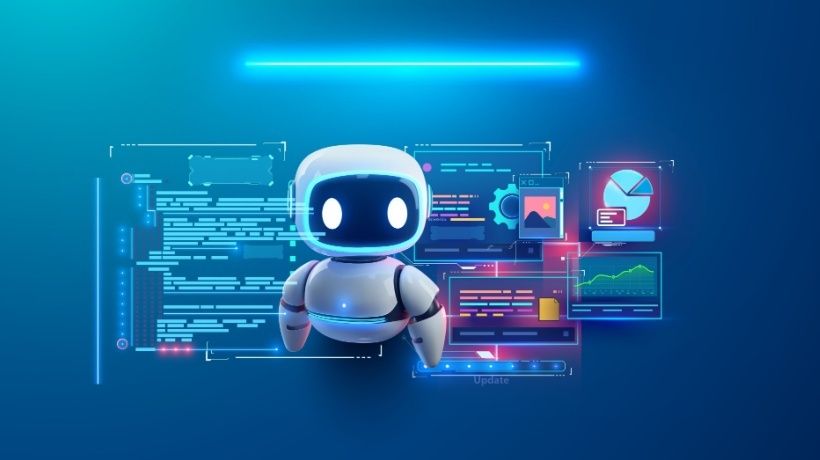The other day my dad offered a glimpse into his world of intrigues. Here I was giving him grief about the spat between the Pope and Rush Limbaugh. During our discussion, he broke out: “Some scholars say that the next antichrist is going to be the Pope.”According to the Internet, my dad may be on to something.Personally I think my dad and the Internet are wrong about the whole pope/antichrist thing; however, I do think some amazing things are going to happen in the next several years and that’s what I want to talk about today.
5 eLearning Predictions for 2014 and Beyond
The following list contains my predictions of likely events for 2014 and beyond:
- You realize that mLearning is Overhyped (for now)In our current landscape, mLearning doesn’t improve our formal learning environment much. In this regard, our users are still tied to a LMS and to the objects within it - any learning that occurs outside of this structure isn’t easily recognized. This is unfortunate as our mobile devices are always with us and support powerful self-directed content. For instance iBooks and ePubs are widely available and used with these devices. These objects can contain dynamic content, video, 3D multimedia, Augmented Reality, complex interactions and software widgets.More importantly these iBooks and other objects can be embedded within our environments and tools. This feature becomes more significant as our mobile devices gain context awareness. Such awareness gives designers the ability to use push/pull measures to deliver content that is related to a person’s immediate and future needs.Fortunately these limits are changing as Experience API and the Internet of Things are slowly becoming a reality. This year you will need to start embracing these technologies and figuring out how your content will work in this new world. Converting your manuals and job-aids to mobile friendly objects is a good place to start.
- Formal training wins This long standing prediction of mine isn’t solely about push/pull, directed versus self-directed or even formal versus informal learning; rather it is about what recommendation engines and open reporting abilities mean for our field.Here Experience API and Open Badges will soon allow us to track any type of learning (formal, informal, directed, self-directed,…). In addition as our Personal, Social and other data profiles become connected/organized within internal systems, our abilities to recommend content for our students will increase greatly. Adaptive learning will eventually be part of this and will mean that our organizations will be able to predict not only the content that our students need, but also their unique content preferences.These systems will also allow us to track and report on all learning activities regardless of whether they are internally or externally provided or even directed or self-directed activities. And when learning professionals have this ability, then, it’s all formal, that is, we have the ability to control what is learned with our recommendation engines as well as the reports to track it.
- You need to up your game nowMOOCs, freelance professors and other trends are shifting the nature of education as a product to education as a service. Here cheap content and competition will eventually mean that market forces will take hold and cause organizations to fail, consolidate and merge. When this happens a glut of skilled professional will be around.You need to start preparing for this eventuality to ensure that your role is valued and needed in five years. Fortunately many new roles are emerging today that will demonstrate this value for years to come:
- Data experts are needed for learning and development folks. People analytics will enter into HR and Talent Management areas and Adaptive Learning needs will begin entering the learning realm.
- Curation and metadata activities are needed to capture, sequence and validate all the cheap and quality content that is available online.
- Gaming and simulation development skills will continue to gain influence and acceptance in the learning world; however, this will remain a niche area until cost/quality/time requirements scale down for it.
- Mobile performance support professionals will be needed to create the tools and content that will be embedded in our work environments.
- Traditional online course designers will be needed, but these designers need to update their skills to address our changing user interfaces—touch, voice, gesture,…
- Formal learning institutions will embrace new opportunitiesMany colleges, universities and other formal learning institutions are in for a rough ride in the next several years. Brick and mortar classrooms will have to deal with the competition MOOCs represent. This access to cheap quality content is a threat to the traditional stand-up model, as students will begin asking themselves, “Why should I pay thousands of dollars for a class when I can get the same or like content online for a fraction of the price?” Only a small group of schools and companies will emerge as the dominant MOOC providers, which means that everyone else will need to figure out how to adjust for their loss of revenue. One promising option is for these learning institutions to form academic partnerships with regional companies and organizations. Here these institutions agree to offer specialized degrees and programs to companies for a set number of students - a learning cohort.Such agreements will create new revenues for these institutions and will allow them to safely plan and project enrollment numbers based off these guarantees. These agreements also benefit the regional companies by providing specialized training for their needs as well as cutting costs related to normal tuition reimbursement models.
- Internal data wars will happen soon In the business world, the departments that tell the best story or demonstrate the most value get the resources and influence within the company. Such dynamics make sense, but can lead to infighting and groups being less than willing to share information. This is unfortunate as the above predictions rely on data sets across our business lines. Getting recommendation engines and reporting tools developed will require cooperation and data from Human Resources, Training, Talent Management, Organizational Development, Business Intelligence, Information Systems, Legal… This year, be proactive and start building relationships with all of these groups so that you can begin developing your engines and tools.
This is the EndYou may have noticed that none of my predictions included an end of the world scenario and if this comes to pass well then “my bad.” If you are rooting for the end of the world, I suggest reading up on the whole Pope/antichrist thing.Regardless of what happens, the next several years are going to be interesting - I hope we all get the chance to enjoy them. Cheers.









